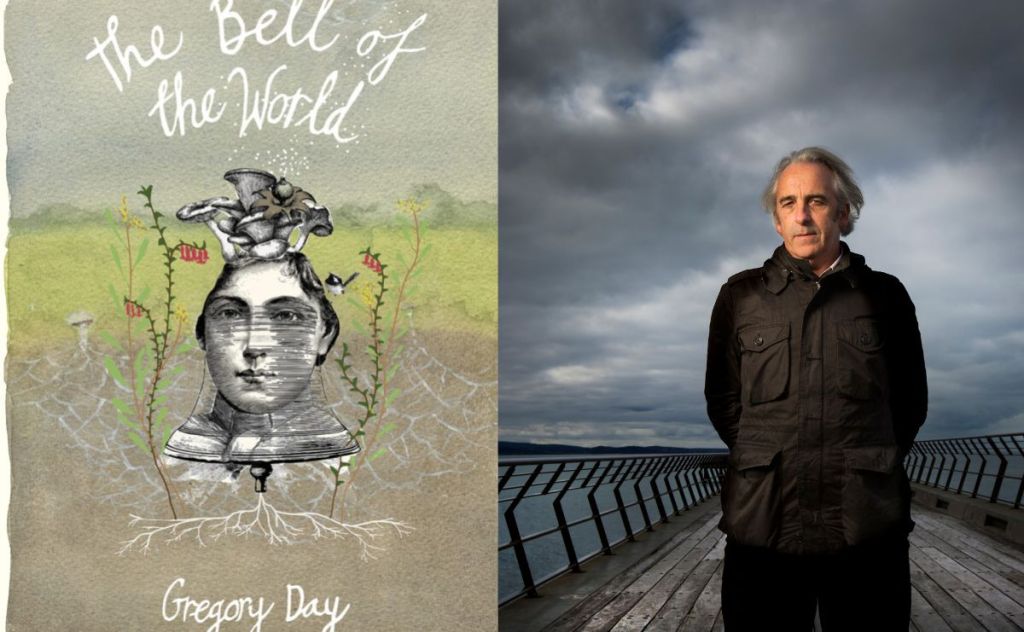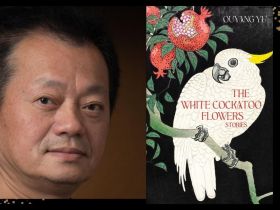Wow! Here comes a book bound in hard cover complete with bookmark ribbon – a literary work that I assume the publishers expect will grace your bookshelves for years to come, and well it may.
My personal taste in novels tends towards fast-paced plots that aren’t too intellectually challenging, although I do enjoy strong characterisation. The Bell of the World offers many insights into the human condition and our interaction with nature and each other, cloaked for the most part in a leisurely atmospheric recounting of some episodes in the life of its central character, Sarah Hutchinson.
That it keeps someone like me eager to turn the pages to know what happens next testifies to the skill with which Gregory Day ensnares the reader. That is partly due to the poetic beauty of the language, but more likely stems from how interesting, endearing, gifted and irritating Sarah is, and how quickly she becomes more real than real; she is intensely captivating. Somehow the meandering descriptions of flora and fauna and various musings manage to lubricate rather than slow the pace.
While the story covers Sarah’s life from early childhood to old age, much is left for the reader to infer. The horror of a girls’ boarding school in England needs only a few anecdotes to convey years of miserable incarceration. Sarah’s liberation to her uncle Ferny’s menage in Rome is treated equally lightly:
‘Indeed, it was as if life was a series of shocks she had undergone, shunted off as she was on HMS Carisbrook to Plymouth and school amongst the macabre sociality of Miss Hunt’s at Ilfracombe, then pushed out across the channel to the relative moral anarchy of Ferny and his milieu in Rome. It was there that she had offered up her virginity to a man old enough to be her grandfather, a man with a purple rinse through his white hair, who attended to her body’s satisfactions with all the attentiveness of a prisoner released from jail.’
Soon afterwards, Sarah and Ferny move to rural Victoria together, start to farm together and together oppose the local community’s plan to install a village bell as they contend that ‘each small earth-flower [is] a bell of its own’. Together they also entertain the local community with concerts at which Sarah plays, to their delight, a grand piano, which she has doctored by ‘placing elements of the bush on and between the strings – gumnuts, bark, sturdy leaves, riverflints, pieces of kangaroo and parrot bone … as well as the odd teaspoon’. Day uses a concert Sarah attends later in life at the Melbourne Town Hall to contrast that audience’s reaction to prepared-piano music – an audience supposedly more sophisticated yet less accepting of the unconventional.
Even more unconventional is what happens to Ferny’s favourite book Such is Life. When a bookbinder is asked to repair it, it comes back twice as thick with Moby Dick intertwined. Somehow that works for Ferny while it touches on the underlying philosophy of this novel: that everything in nature goes together, that there is a great intermingling and that the sound of nature, nature’s bell, the bell of the world, should not be drowned out by what we do, but is enhanced by strange combinations.
Read: Book review: I’ll Leave You With This, Kylie Ladd
This book is a literary novel, a prose poem, a biographical masterpiece, a tribute to nature and a collection of thoughts about life and death and everything in between. A review of around 600 words cannot do it justice even if the reviewer were much more erudite and perceptive than this one. But it can enthusiastically proclaim that it is supremely worthy of your attention.
The Bell of the World, Gregory Day
Publisher: Transit Lounge
ISBN: 9780648414087
Format: hardback
Pages: 416
RRP $32.99
Publication: 1 March 2023





